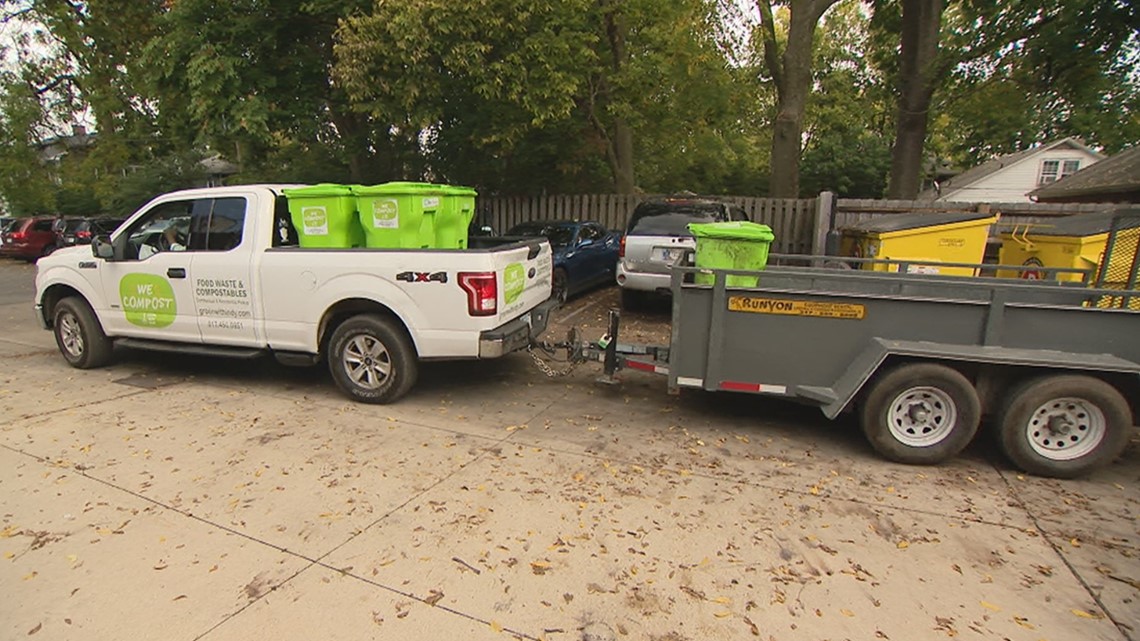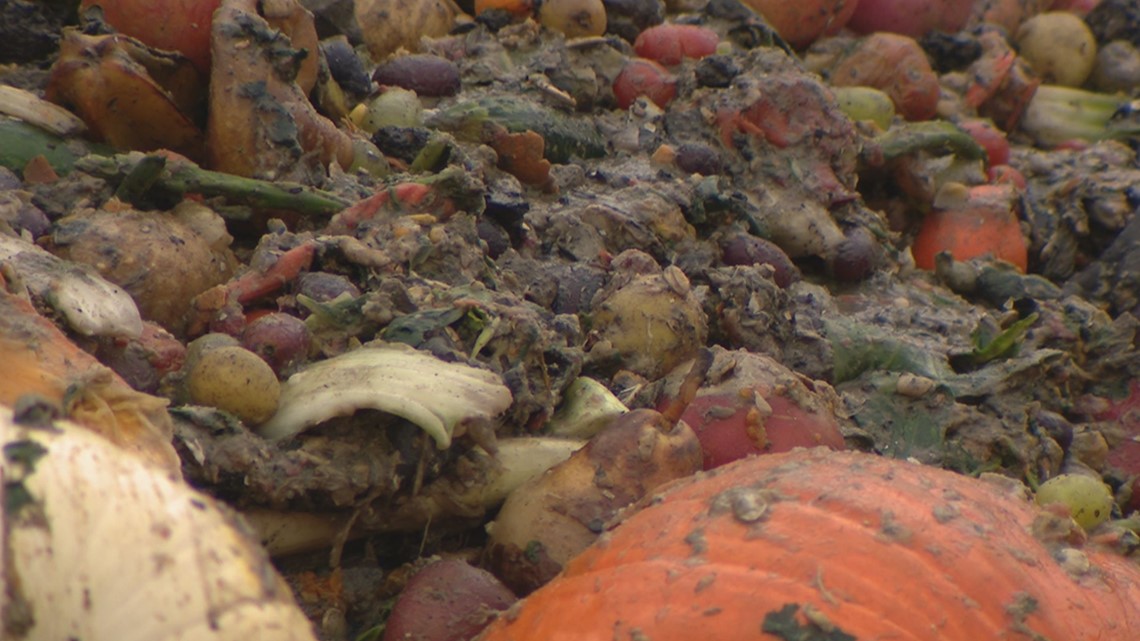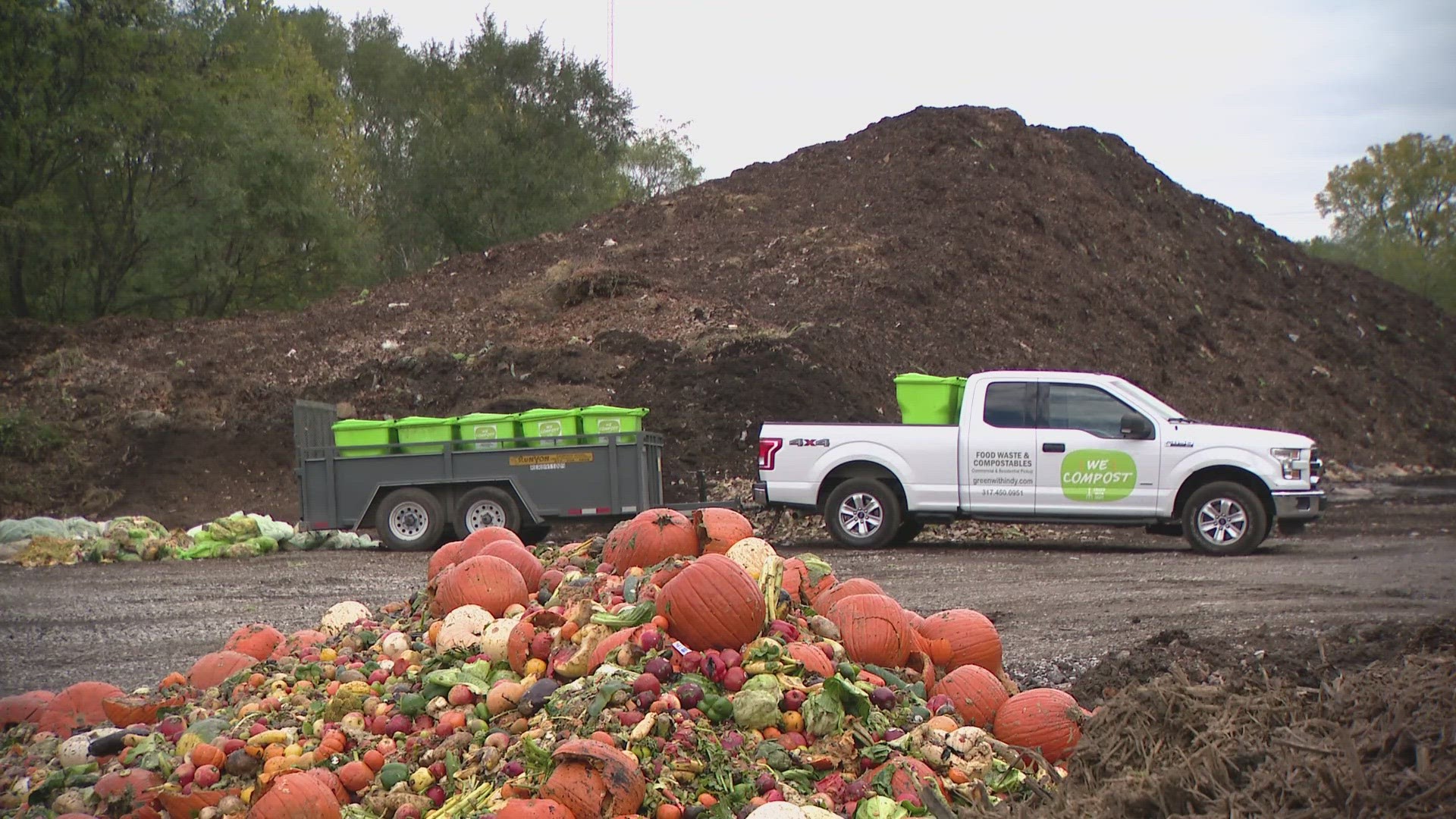INDIANAPOLIS — We typically separate our trash into regular pickup and recycling.
Now, more people are adding a third option: composting.
The composting process is a lot like cooking a dinner, and the first step is gathering the ingredients. That is where people, including John and Cece Crone, enter the kitchen.
"Coffee grounds, we put in (the bin)," Cece said, "eggshells, onion skins, kale stems."
The Crones said they began composting about 2 1/2 years ago.
"I've just always kind of felt that, that I didn't want to be wasteful," Cece said. "The Earth is precious to me."
Instead of tossing their food waste, cardboard and dryer lint into the trash, they pay for their lined, five-gallon bucket to be picked up bi-weekly. That way, the materials break down somewhere else.
The Crones use the hauler Green with Indy.
After a $65 startup fee that includes a bucket, corn starch bags and one month of service, bi-weekly pickup is $20 a month.
Greg Walton said he started the service with just an SUV.
"Patachou was my first customer," Walton said.
Now, between the homes and restaurants, he needs a trailer.


"This is a good-smelling day," Walton said as he ripped open a corn starch bag. "Those are coffee grounds with their coffee filters. The coffee filters are paper, and those break down as well."
After Walton runs his routes, he takes his haul to GreenCycle. That is where the compost is mixed with other ingredients.
GreenCycle co-owner John Repenning said the recipe is easy: green and brown.
"We know that green and brown together kills the odor and helps the microbial action. So, what they'll do is they'll dump all this," Repenning pointed out. "We'll inspect it, and then we'll mix it with the leaves that are coming in."
Repenning said the piles are stacked high to increase the temperature to around 140 degrees, so the compost cooks down.
"We're taking what would be a waste and turning it into a commodity," Repenning said, "Otherwise, it would go into landfill, and we never use it again."
Like the Crones' dinner recipe, the materials are occasionally mixed and simmer. Except in this case, the pile is mixed once a month, and it simmers for a year.


After one final check for contaminants, it is ready to serve customers.
"This is pure compost," Repenning said as he lifted a handful of dirt, "if you pick this up right now, just smells like nice dirt."
Repenning said there is also a social aspect to offering this service.
"It's the best job you could have. You can make a living and do the right thing," Repenning said.
If you want to compost at home, you can easily do so in the corner of a yard. Compostable items include produce, cardboard, dryer lint, dog fur, bakery products and more.
Stores also sell plastic bins that both conceal the compost and give you the ability to mix it yourself using a handle.

